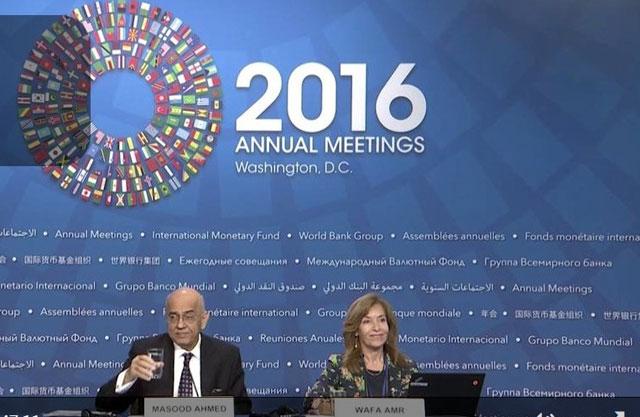You are here
Gov’t examining unification of tax, custom rates
By JT - Nov 12,2016 - Last updated at Nov 12,2016
AMMAN — Industry, Trade and Supply Minister Yarub Qudah on Saturday said the government is studying a move to unify the customs and sales tax fees, the Jordan News Agency, Petra, reported.
During a meeting at the Amman Chamber of Commerce (ACC) with representatives of the trade and services sectors, Qudah said the Finance Ministry is studying the move to “minimise disparity among some sectors”.
His remarks came in response to a request by the businessmen for the government to declare its stand on recently made recommendations to cancel all tax exemptions in effect and reduce the sales tax from 16 to 12 per cent.
This includes the elimination of the zero tax for all commodities and raising it to 12 per cent, as well as unifying customs fees to maintain them at percentages ranging between 3 and 7 per cent.
The participants were apparently referring to recommendations made by both the International Monetary Fund (IMF) and the Economic Policies Council (EPC), which was formed upon directives by His Majesty King Abdullah earlier this year.
The IMF recommended last week that Jordan eliminate the general sales tax zero rate and maintain exemptions only for a limited set of goods, according to a report listing suggestions compiled by the IMF upon the government's request.
The report came after the IMF conducted its first economic review of the Jordanian economy following a $700 million extended fund facility deal.
In September, the Cabinet adopted 38 recommendations made by the EPC, announcing that the suggested plans would go into effect immediately after making the necessary arrangements.
The council suggested creating a “flat low rate for customs and goods and services tax while reconsidering exemptions”.
The EPC has already decided to form several sub-committees specialised in the fields of economic legislation, taxes, customs, refunding and entrepreneurship, transpiration trade and business environment.
The IMF hailed the proposals. In October, the fund’s director for the Middle East and Central Asia Department Masood Ahmed said the recommendations made by the EPC were “growth-oriented and aimed at enhancing the competitiveness of the private sector”.
For their part, the representatives suggested exempting all consumer goods from customs fees and finding ways to make up for the value of the exemptions through other taxes, to sustain Treasury revenues.
They also agreed with the government’s approach to unify the customs fees and sales tax for all imported commodities, following suit of neighbouring countries.
The attendees highlighted the importance of revisiting the 2016 companies draft law while taking into consideration the inputs of the trade sector, which, they claimed, reflect the aspirations of the private sector.
Qudah said the government is considering a new companies law that adopts the best international practices, and seeks to benefit from regional success stories in this regard.
The sector leaders also called for renewing the exemption of hybrid cars from sales tax for five additional years instead of renewing it annually to stimulate investments. The industry minister said the government has not reached a decision yet regarding the matter, which, he said, was still under discussion by the Cabinet.
Regarding “rumours” about an imminent increase in the prices of bread, Qudah said the government has no intentions to increase bread prices.
For his part, Senator and ACC President Issa Murad said Jordan is going through hard economic conditions for political reasons resulting from the regional situation, which has weakened the the purchasing power and slowed the exporting activity of several sectors.
Related Articles
AMMAN – The government will include in its policy statement, to be presented to Parliament next month, procedures related to tax incentives
AMMAN – The International Monetary Fund (IMF) on Friday said the recommendations made by the Economic Policy Council (EPC) last month are gr
AMMAN — His Majesty King Abdullah on Wednesday headed the Economic Policy Council (EPC) meeting, during which the first set of recommendatio

















